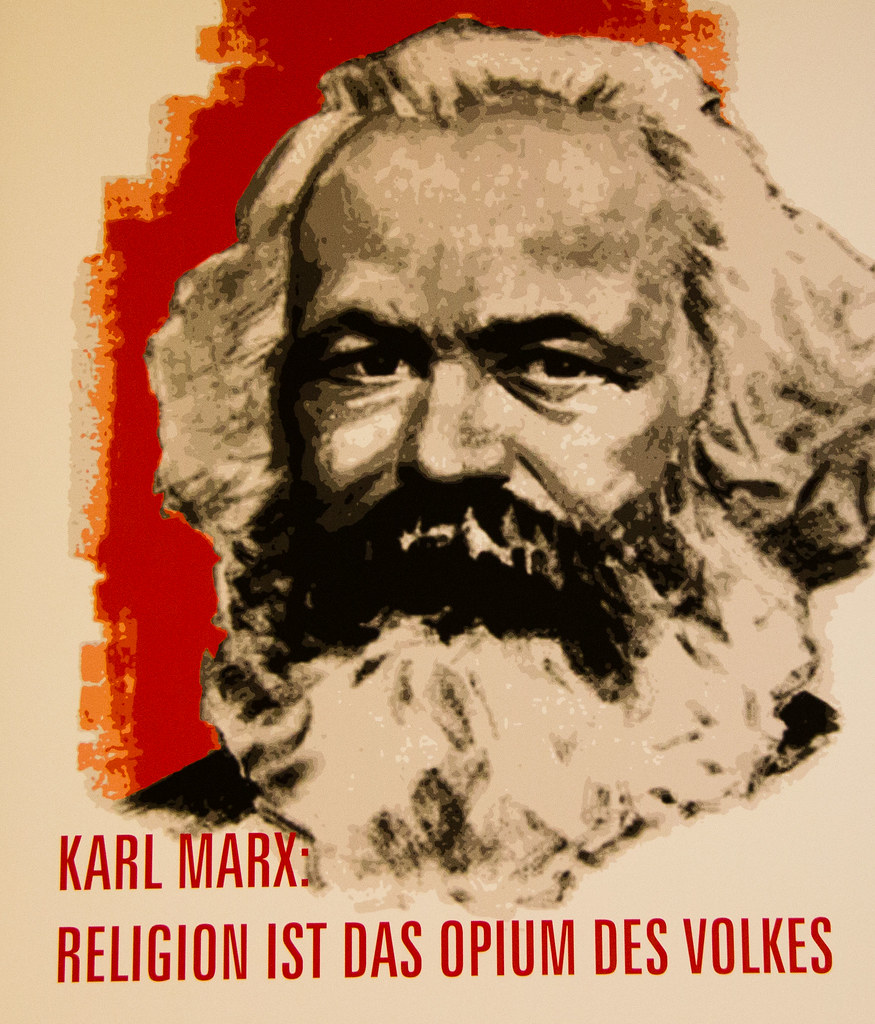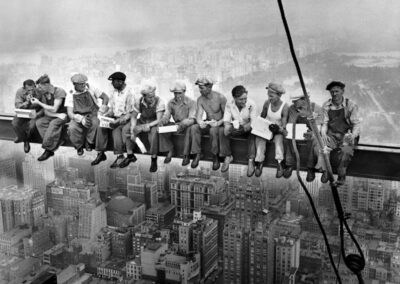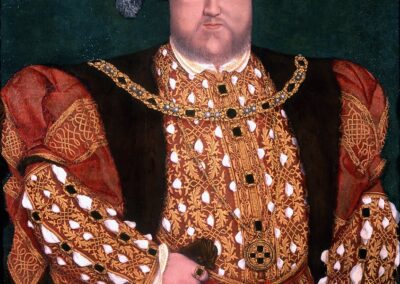Marx and Capitalism

Written by lara
Let’s talk about Marx. I’m sure all of you are already pretty familiar with the co-author of “Das Kapital”, or “The Communist Manifesto”. And you for sure are familiar with that unforgettable beard. (I mean, just look at it!)

Let’s however refresh your minds on the XIX century philosopher. So, Karl Marx is born in Trier, in Germany in the year 1818. He’s born in a relatively financially stable family. As Marx grows up, the socialist movement starts to rise in Europe, especially in Germany and France. The young man supports those movements with his carrier as a journalist which essentially leads him to have to seek refuge in England because he’s risking too much with his political writings. Sadly, Marx and his family fall into poverty and the philosopher sees first hand how the labor working life looks like. This situation actually fueled a lot of his socialist writings and philosophy.
Marx is the most famous figure of what we call the confrontational non-fatalist paradigm. Essentially what that means is that Marx sees society not as some sort of functioning organ where each party contributes to the mass (Which represents Durkheim’s holistic view), but instead as individuals, or more so, social classes divided by their different interests. The important point to understand is that for Marx the fundament to all existing societies is the class conflicts. There’s two main classes Marx defines:
The Bourgeoisie which are essentially rich merchants and farmers who posses’ the lands and means of production, and the Proletariat who are the workers who don’t possess anything and must sell their labore power to survive.
The Bourgeoisie’s interests lay in that power relationship of dominance. It’s beneficial for them. And you guessed it of course, the poor stay poor and the rich only get richer by exploiting the workers, paying them less than what their labore is worth. The difference is what we call “plus-value” and it’s what serves as benefice for the landowners in a capitalistic society.
The thing is workers don’t just “blindly” accept these forms of injustice. It’s not like they are okay with it. It’s more complex than that, there something called the superstructure you see. The superstructure regroups all things that “regulate” ideologies
So, for example, the Church, school, the state, newspapers, politics… Now just take a second to think: What’s one simple and easy trick to manipulate the masses? Exactly, the newspapers! Once you’re rich enough to own the redaction journals, you can influence the writings in whatever direction you want, what works in your favor. Maybe you’ve heard of Marx’s famous quote “Religion is the opium of the masses” Otherwise translated: Through faith the Bourgeoisie controls the proletariat. Which essentially means that the superstructure is a tool for, and used by, the higher classes to alienate the lower ones and by doing so, help avoid a revolt.

“Religion is the opium of the masses”
If we take things a notch further, Marx is an advocate of the inevitable revolution of the working class. The German socialist had that optimistic view that once the individuals in the working class (or otherwise named the proletariat) realise that they share common interests, that they all have the same goals (the dissolve of private propriety), they’ll have a sort of class consciousness which is necessary for them to take action and rebel against their working conditions. The only reason it hasn’t happened yet is because they don’t see they share common goals.
Does the 1789 French Revolution ring a bell? Because that’s exactly what happened, people took conscious of their shared interests, knew that together they were stronger and more numerous than the nobility.
It was the matter of a few short years before the course of history was changed forever. The main difference however is that it was both the proletariat and the bourgeoisie that together overthrew the nobility class. It happened because they shared common interests, were aware of their goals and took action This is what Marx calls class consciousness.
But the victory was short lived for the proletariat because at soon as the nobility “disappeared”, the Bourgeoisie took its place at the top and left the poorer classes behind, not wanting to share equitably what they ‘d together fought to obtain. Anyway, if a class consciousness was able to emerge in amongst the people and that a revolution took place in France, it should be able to happen in England as well, or so Marx thought at least.
Of course, Marx’s theories go far beyond what I’ve tried to convert here, this is only a resume of what I consider to be the key elements. If you’re interested in learning more here are a few good YouTube videos that might help you:
CrashCourse. (2017, April 17). Karl Marx & Conflict Theory: Crash Course Sociology #6 [Video]. YouTube. https://www.youtube.com/watch?v=gR3igiwaeyc
The People Profiles. (2024, November 15). Karl Marx – the most divisive philosopher in history documentary [Video]. YouTube. https://www.youtube.com/watch?v=gsdnyMJYsqY

